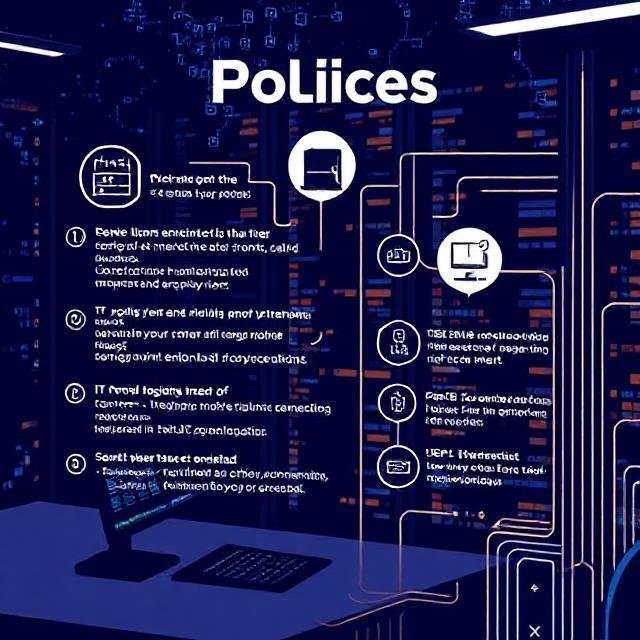Essential IT Policies Every Business Should Have in Place
Many small and mid-sized businesses overlook the importance of formal IT policies. They may think that verbal instructions or informal rules are enough. But this approach can lead to confusion, security risks, and even legal trouble down the line.
Employees can’t be expected to read your mind — what seems obvious to you might not be to them. And without clear guidelines, your business becomes more vulnerable to data breaches, misuse of company resources, and compliance issues.
In fact, 77% of employees use social media during work hours , with nearly 20% spending an hour or more on it daily. In many cases, there’s simply no clear policy in place to guide their behavior.
Let’s look at the core IT policies every organization should implement to protect itself and ensure smooth operations:
1. Password Security Policy
Weak passwords remain one of the leading causes of data breaches worldwide. A strong password policy ensures your team follows best practices for login credentials.
It should cover:
- Minimum password length and complexity
- Rules for storage and sharing
- Multi-factor authentication (MFA) requirements
- Frequency of password changes
This policy is a first line of defense against unauthorized access.
2. Acceptable Use Policy (AUP)
An Acceptable Use Policy sets expectations for how employees should use company technology and data.
Key elements include:
- Proper use of devices, networks, and software
- Restrictions on personal use of company assets
- Guidelines for securing devices and storing sensitive information
- Requirements for keeping systems updated
This policy helps prevent misuse and promotes accountability.
3. Cloud & App Usage Policy
With up to 60% of cloud app usage falling outside IT oversight , “shadow IT” poses a major risk. Employees often download unapproved apps thinking they’re helping themselves — but they could be exposing your data.
Your Cloud & App Usage Policy should:
- List approved applications for business use
- Prohibit the use of unsanctioned tools
- Provide a process for requesting new tools
- Clarify consequences for policy violations
This keeps your data secure and your tech stack under control.
4. Bring Your Own Device (BYOD) Policy
Roughly 83% of companies allow employees to use personal devices for work. While this boosts flexibility and reduces costs, it also opens the door to security risks.
A solid BYOD policy should cover:
- Required device security standards (e.g., updates, encryption)
- Installation of mobile device management (MDM) tools
- Employee responsibilities regarding lost or stolen devices
- Clarity on reimbursement or compensation for work-related use
This balances convenience with cybersecurity.
5. Wi-Fi Use Policy
Public Wi-Fi is a common gateway for cyberattacks. Many employees don’t think twice about checking company email from a coffee shop network — which can expose sensitive information.
Your Wi-Fi Use Policy should:
- Discourage or restrict public Wi-Fi access for company work
- Require the use of a virtual private network (VPN)
- Outline prohibited activities when connecting from unsecured networks
This helps keep your data safe, no matter where employees work.
6. Social Media Use Policy
Social media is part of everyday life — and that includes the workplace. Without clear boundaries, it can eat into productivity and pose reputational risks.
Your Social Media Use Policy should:
- Define acceptable work-hour usage
- Specify what employees can or cannot share about the company
- Identify areas where taking photos or videos is prohibited
- Encourage professionalism when posting online
This protects both your business and your brand image.
Protect Your Business with Strong IT Policies
Whether you’re a startup or a growing SME, having well-defined IT policies isn’t just a formality — it’s essential for security, compliance, and operational efficiency.
If you’re unsure where to start or want to review your current policies, we can help. Our experts will guide you through creating or updating your IT policies to reduce risk and support your business growth. Contact us today to get started!
